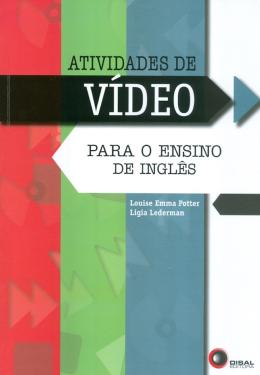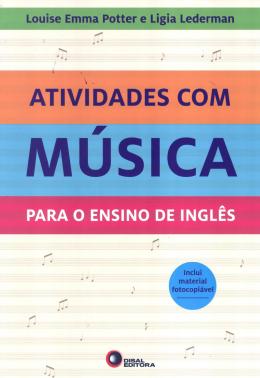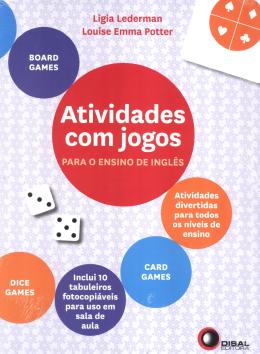
Many scholars have analysed the root of the word education and have come to realise there are different meanings for the same root. Craft (1984) noted that there are two different Latin roots of the English word education. They are educare, which means to train or to mould, and educere, meaning to lead out, to draw out. One can notice that they are both very contradicting concepts as one looks at education as passing down knowledge as in a training session to mould student’s mind and the other one looks at education as an open minded leading and facilitating process.
One can see the same conflicting process going on in schools and teacher development courses throughout the world. Do we mould or do we lead? Should we follow the exact steps of the teacher trainer or should we find our own voice?
I believe teaching is, first of all, about connectedness. Good teaching is not only about having good techniques. Good teaching is also about having identity, integrity and perceiving the importance of connectedness amongst individuals, society and nature. Understanding what is involved in leading and facilitating our student’s learning process is the key, and we can only do that with expertise if we also have the background theory in whole education and a growth mindset in life. The balance of both is essential for a whole education to happen.
So, neither educare or educere. Both. One cannot educate by only passing down knowledge or just by leading and facilitating. As goes the Buddhist interpretation of the Middle Way as being the path between two extremes, close to Aristotle’s idea of the “golden mean” whereby “every virtue is a mean between two extremes, each of which is a vice”.
However difficult it might be to find the balance between them, I believe to have found it by using the Project Based Learning (PBL) approach. Thomas (2000, p.2) defines PBL as a teaching approach that involves complex tasks, based on challenging questions or problems.
Studies have shown that Project-based learning stretches student’s ability to understand concepts that would otherwise mean nothing to them. The main points during a PBL approach is not to memorize facts or gather information. It is to give students the real sense of a real-world learning experience.
When students go through this kind of learning experience, the final product, which is one of the elements in PBL, is only a small chunk of what they were able to experience during the process. The process, the inquiry, the collaboration is much more important than the product itself. PBL takes students to learn on a different level. However, I definitely believe that to teach within the PBL approach is much more about teacher identity than technique. Understanding the steps and be willing not to be in the centre of the process is fundamental. Students take that role, by designing, problem solving, taking decisions and investigating. The teacher’s ability to facilitate students’ learning, understand what each student needs to take a step ahead during the process, understand and envisage students’ necessities and talents, differentiate their instruction when needed, scaffold their linguistic needs, is a long and winding road which demands not only theory, but openness, collaboration, growth mindset and wisdom from the teacher’s point of view. Research has also demonstrated that students in project-based learning classrooms get higher scores than students in traditional classrooms (Marx et al., 2004; Rivet & Krajcik, 2004; William & Linn, 2003).
Unfortunately, we still live in an education system where the culture of fear predominates. Grading system separates students from teachers, fragmented fields of knowledge are established in the schools and competition is a common fact that many schools encourage. These factors only bring on a lack of identity between students and teachers, a lack of stimulus to think on behalf of the students and consequently a lack of motivation to learn. This snowball tends to grow as years go by. The educational system becomes distorted, being more concerned with producing effective test takers than successful learners (Gallagher, 2010). We judge teaching effectiveness based on student absorption of material, and teaching becomes defined as the delivery of that material.
This kind of education explained above is contradictory to the whole thought of Futures Literacy. Futures Literacy, developed within UNESCO, is a capability that offers insights on how we approach unforeseeable challenges by using the future to innovate the present (Miller, 2015). Becoming futures literate means you have the capacity to identify, design, target and deploy anticipatory assumptions (Miller 2018b, 24). A futures literate person can answer the question: “What is the future and how do I use it?” (Miller 2018b, 6). According to Miller futures literacy is a capacity that can be trained and a skill that can be revealed and obtained through a learning process. Project Based Learning, I believe, is one of these learning processes.
The world is becoming increasingly complex and uncertain. How can we educate our children for a world that we are not even sure which kind of jobs will they encounter in 5 or 10 years? Our students do not need information. Access to this is on the tip of their fingers. We need to show them paths to use their imagination, to enhance their creativity and resilience.
Futures literacy is available through the discipline of anticipation, which can be trained and refined to establish familiarity with the unfamiliar. The discipline of anticipation is the ability to become aware of assumptions about the future, and mastering it allows us to view uncertainty as a resource, rather than an enemy of planning. By imagining different futures, individuals can become aware of their capacity to shape and invent new anticipatory assumptions, and the act of shifting this ability to anticipate from an unconscious to a conscious state is the start of becoming futures literate.
(Larsen, N Kæseler, J Mortensen & Miller, R. Copenhagen Institute for Futures Studies,2020).
However, in order to even begin any training in a discipline of anticipation, understanding that creativity, imagination and connectedness in education is a must. To view uncertainty as a positive aspect is a completely different mindset from what students (and teachers in fact) are trained for. Schools underestimate students’ ability to discuss ideas and concepts and still encourage them to define and memorize facts. We are failing to strengthen our students’ cognitive abilities.
Before even considering Project Based Learning in the classroom, one must take a step back and take a look at our school culture. Examine how our schools’ disciplines are structured inside the schools’ timetables and ponder whether there is space for teachers to plan cross curricular lessons. One cannot have a cross curricular project if there are no slots allowed for teachers to sit together and plan, collaborate and exchange ideas amongst their area of studies. How can you encourage students to collaborate if teachers do not do the same? How can we teach something to students if we have not embraced it? I believe that the first step toward Future Literacy is having teachers understand that we are now learning together with our students. We are as uncertain as they are for the future. But we can train ourselves to anticipate, imagine, create and design for something we still are uncertain of. Embracing PBL is one of the paths we can take. And embracing PBL in the language classroom is even more of a challenge, as we have the language barrier to cope with. However, using the correct scaffolding techniques and understanding that language is a means and not the end, having moments of direct instruction, bridging and language teaching techniques, brings it all together in a teacher – student learning process.


Tem como objetivo orientar professores de Inglês a preparar e utilizar vídeos em aulas. Os filmes escolhidos visam estimular o pensamento crítico, ampliar o vocabulário, expor os alunos a diferentes tipos de pronúncia, expandindo suas visões de mundo.

Com o objetivo de orientar professores de inglês a preparar e utilizar atividades com música para alunos de níveis básico, intermediário e avançado, o livro se divide em duas partes: a primeira contém atividades fotocopiáveis para os alunos e a segunda, informações sobre autor, cantor ou banda, orientações para o professor, respostas das atividades e as letras completas das músicas.

O objetivo desse livro é orientar professores de Inglês a preparar e utilizar jogos em suas aulas a fim de obter resultados motivacionais e também pedagógicos. Reúne uma seleção de jogos para todas as idades e é dividido em quatro partes: Introdução- parte teórica; Jogos com tabuleiros; Jogos com cartas e Jogos com dados. Cada jogo tem seu objetivo linguístico, uma orientação específica, materiais e número de participantes necessários. A introdução contém embasamento teórico e orientação para os professores com dicas de como usar jogos em geral e como manter a disciplina. Em seguida, são apresentados os jogos e, no final, os anexos necessários. Inclui 10 tabuleiros coloridos.
THE AUTHOR

Louise Emma Potter is a teacher trainer, material writer and international presenter. She was born in England and has been working in the education field for more than 25 years. She holds a BA in Marketing and Advertising and has since applied her knowledge to the Education area, having as area of expertise teacher training and teacher development. She worked as a coordinator for 12 years leading a team of teachers for a well-known language school and now leads her own business at Teach-in Education developing the professional growth of language teachers in private and public schools through workshops and training sessions. She has also recently co‑authored a self-published book called Project Based Learning applied to the language classroom. She has written a series of materials for young learners at Somos Educação writing for Sistema Anglo de Ensino until this present day, she has written extensive reading programs for FTD Standfor (Expedition), young learners materials for Pearson (Green house and Paddy the Jelly) and the books listed below for Disal Editora: Atividades de vídeos para o ensino de Inglês, Atividades com música para o Ensino de Inglês, Guia para o Ensino de Língua Estrangeira e Atividades com Jogos para o Ensino de inglês.
Site: www.teach-in.com.br
Linkedin: www.linkedin.com/in/louise-emma-potter-0886a519/
REFERENCES
• Craft, M. 1984. Education for diversity. In Education and cultural pluralism, ed. M. Craft, 5–26. London and Philadelphia: Falmer Press.
• Rivet, A., & Krajcik, J. (2004). Achieving standards in urban systemic reform: An example of a sixth grade project-based science curriculum. Journal of Research in Science Teaching 41(7), 669–692.
• Marx, R. W., Blumenfeld, P. C., Krajcik, J. S., Fishman, B., Soloway, E., Geier, R., & Revital T. T. (2004). Inquiry-based science in the middle grades: Assessment of learning in urban systemic reform. Journal of Research in Science Teaching, 41(10), 1063-1080.
• Miller, Riel (2018a) Futures Literacy: Transforming the future. In: Miller, Riel (ed.) Transforming the Future: Anticipation in the 21st Century, 1-14. Routledge. Forthcoming.
• Williams, M., & Linn, M. (2003). WISE Inquiry in fifth grade biology. Research in Science Education, 32 (4), 415–436.
• Larsen, N, Mortensen, J & Miller, R: What Is ‘Futures Literacy’ and Why Is It Important? (2020) https://medium.com/ copenhagen-institute-for-futures-studies/what-is-futures-literacy-and-why-is-it-important-a27f24b983d8

